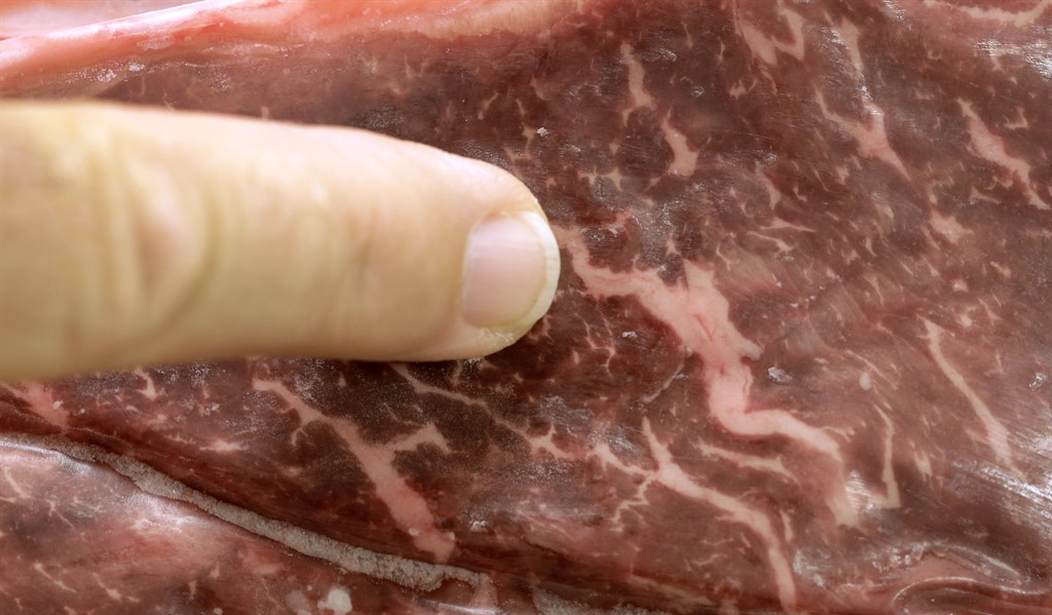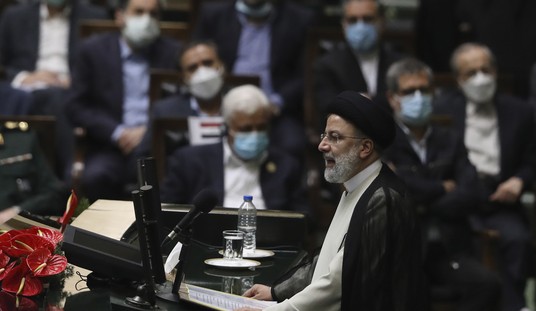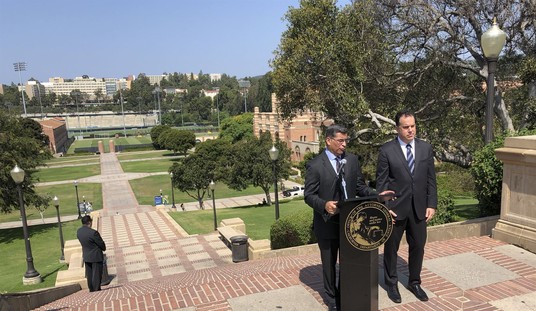On a day when Marines are supposed to be feasting on rare beef, and imbibing heavily to wash down cake at birthday celebrations, this was disconcerting news.
The United States is importing record amounts of beef this year and exporting less after ranchers slashed the nation’s cattle herd to its lowest level in decades, tightening margins for meat companies like Tyson Foods (TSN.N).
The decline in cattle numbers, after years of drought fried pasture lands used for grazing, led to soaring U.S. beef prices. Higher prices incentivize companies to import cheaper beef and discourage U.S. beef purchases by buyers like China, Japan and Egypt.
…The U.S. Department of Agriculture (USDA) expects the U.S. to drop to the ranking of world’s fourth-largest beef and veal exporter this year, down from second in 2022.
We’re importing beef? That’s cheaper than growing our own moo-cows?
…Tyson CEO Donnie King in August warned low cattle inventories were leading to difficult export market conditions. The U.S. beef cow herd in January was the smallest since 1962.
Holy smokes.
We have such a squeeze on domestic beef supplies that we’re even opening the door to beef imports from places that have been shut-out for years.
The United States will next month reopen its doors to exports of Paraguayan beef after a quarter of a century, the U.S. embassy in Paraguay said on Thursday, as regulators concluded an extensive review.
President Santiago Pena called the move “a historical milestone” on social media platform X, saying the process had involved long audits and a 25 year wait.
A synopsis in a farm bill platform statement was pretty dreary reading. As I interpret the introduction, very few of the dollars associated with purchasing your steak, ground chuck, or roast make it back to the farmer or rancher who is actually raising the cattle.
…The U.S. cattle industry is marked for failure – just as occurred to its sister sheep industry that no longer provides even half the volume of lamb needed to satisfy America’s consumers – unless Congress acts decisively to enact meaningful reforms in the 2023 Farm Bill that restore competition to U.S. cattle markets and profitable opportunities for independent cattle producers.
Unsurprisingly, the economic viability of all segments of the live cattle supply chain is in peril as evidenced by prolonged declines in cow/calf producers’ returns, returns to cattle feeders, and the overall share of the consumer’s beef dollar allocated to the live cattle segment of the beef supply chain, which as shown below was flipped on its head in just over a generation.
These declines are associated with an ever-increasing average age of the U.S. farmer and rancher, and a steep decline in average annual net cash income for cattle operations. The very heart of the U.S. cattle industry is in peril – its cattle operations with an economically viable herd size upon which the independent operator is exclusively or almost exclusively dependent for his/her livelihood.
The drought situation has been pushing cattle ranchers to the edge of coping for going on two years now. Last year, Fox Business talked to a rancher who explained what the double whammy of inflation and drought – because they have to buy more food as opposed being able to let cattle graze – was doing to their businesses then. The result of those measures, the scaling back and economizing to stay afloat are what we’re seeing on the backside now.
…”You can’t all of a sudden cut your income in half, especially when most of your costs continue to stay there and continue to do that year over year,” rancher Stan Van Vleck said.
Soraing prices are also impacting farmers across the country, forcing some to fold and sell their farms. For farmers like Van Vleck, he’s having to scale back his operation.
“After a few years, people will end up having to sadly sell their business and go out of business, and that’s just not good for the consumer,” he said. For several years in a row because of the rising costs of raising cattle and drought conditions, he has purchased about 30% less cattle to raise.
“Two to three years ahead of time, we’re going to have a much smaller beef cattle herd to work off of. For any beef we see in the grocery store, and that’s going to push prices up,” American Farm Bureau Association Economist Daniel Munch said.
God bless them, it’s a tough life.
Some farmers, ranchers, and small distributors have tried filing price-fixing lawsuits against the big packing consortiums. But they haven’t amounted to much, having either been thrown out for lack of standing (ranchers’ suit) or just beginning to wend their way through the court system. Tyson has money. Ranchers do not. The other consideration before filing a lawsuit is the retaliatory factor. Who will process and sell your beef if you try to take on the big guys who own damn near everything?
Compass Group USA, a contract foodservice company based in Charlotte, North Carolina, filed suit on Tuesday alleging price-fixing since 2015 by the Big 4 U.S. beef packing companies.
The complaint alleges Tyson Foods, Cargill, JBS and National Beef conspired to limit the supply of beef in the United States and thereby artificially inflating beef prices.
This is the second suit the Big 4 has faced in recent weeks. A month ago, a group of small food distributors filed similar claims against the same companies. They said the alleged scheme continued and has caused them financial harm at least through the end of 2021.
US beef prices hit record high
Ranchers cut the national cattle herd size to a 61-year low
Beef production ⬇️5.2% year-on-year
USDA: Average prices of beef sold in US shops & supermarkets have risen to about $8 per pound
Live cattle prices in Chicago also near record highs,… https://t.co/Rt7qwc1aG3 pic.twitter.com/zu1lXrqABA
— Prodigal (@ProdigalThe3rd) November 10, 2023
I know I’ve had a heart attack at the price of a chuck roast several times over the course of the past year, and I’m blessed to be able to buy it if I needed it. I can’t imagine trying to feed four kids with three of them boys at the prices everywhere now.
But the one thing I know is that I’m not blaming the guy who put the cow on the cattle car to send it to market for the excruciating pain it costs me by the time I see it in the meat case. There’s a good chance he can’t afford to buy it himself.
Whatever I’m buying, though, I’m still checking for that American beef label.








Join the conversation as a VIP Member